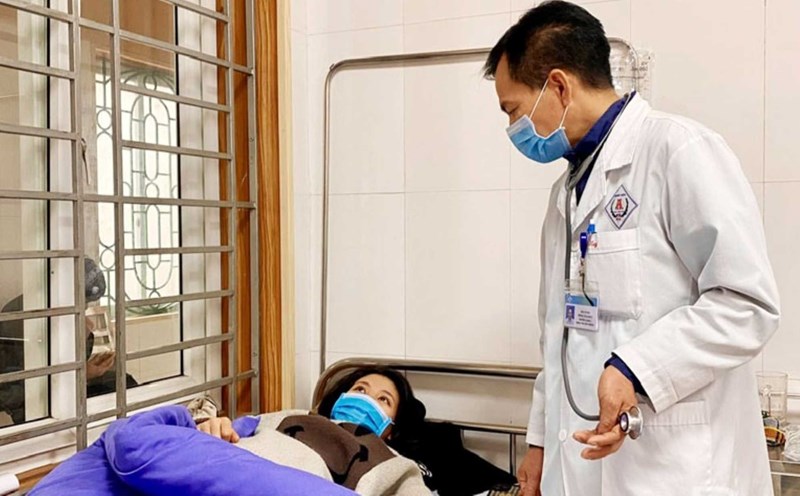Understanding flu
According to Dr. Dinesh Kumar Chirla, Director of Special Care Services at Rainbow Children's Hospital, Hyderabad (India), flu is a common disease and often flare up in winter, when the weather is suddenly cold. Although the flu usually only causes mild illness in healthy children, for children at high risk, the disease can be serious and even fatal.
High-risk children include children under 5 years old, especially under 2 years old, and children with underlying diseases such as asthma, neurological disorders, lung disease, heart disease, cancer and immune degradation conditions.
How does the influenza virus spread?
The influenza virus spreads through the respiratory tract, from person to person through respiratory drops during coughing, sneezing or through contact with objects infected with the virus.
The incubation period usually lasts 1 - 4 days (an average of 2 days), and the virus can spread from 1 - 2 days before symptoms appear to 3 - 4 days after symptoms.
Symptoms of flu
Children with the flu often experience fever, headache, muscle pain, cough, cold and sore throat. Some children may have high fever, loose stools and vomiting. Children with uncompromised flu usually recover within 5 - 7 days. However, the cough can last for 2-3 weeks and the fatigue can last for several weeks.
Treatment of flu
When children show signs of high fever and respiratory symptoms, parents should suspect that the child is infected with the influenza virus and need early treatment, especially for high-risk children. Timely treatment can help children recover faster.
Treatment measures include:
Get enough rest and drink plenty of water: Helps the body recover and avoid dehydration. Observing the color of urine can show the body's hydration level. Urinary water needs to be light yellow and children need to urinate every 3 - 5 hours.
Fever-reducing medicine: paracetamol is often used to reduce fever, while Ibuprofen can be used after consulting a doctor.
Antiviral drugs: Oseltamivir and Zanamivir are antiviral drugs that can help treat flu. Most effective when taken within 48 hours of symptoms. However, the drug can be prescribed later for children with severe underlying diseases or children with weakened immune systems.
When to take your child to the doctor?
If the child shows signs of prolonged high fever, difficulty breathing, or has serious symptoms such as vomiting and dehydration, parents should take the child to the doctor immediately for timely treatment.
Note
Cold-season flu can seriously affect children's health, especially those with underlying diseases. Parents need to proactively vaccinate their children against influenza and pay attention to symptoms for early treatment, helping them recover quickly and avoid dangerous complications.











